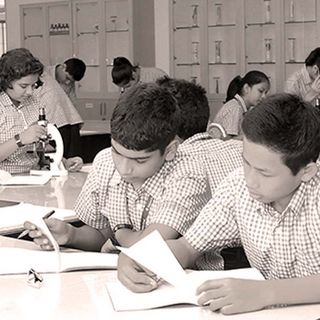
World’s First Domestic Violence Leave Law Enacted in New Zealand
The policy will provide 10 days’ paid leave to escape an abusive home.

New Zealand has passed the world’s first domestic violence leave policy, legislation that provides 10 days of paid leave to victims of domestic abuse. The leave is intended to give individuals time to pack up their lives and find a new residence for themselves and any children, reports The Guardian.
The law was greeted with applause from the MPs who passed it, 63 to 57. The bill was a controversial one. New Zealand has one of the highest rates of domestic violence among developed countries, and police there respond every four minutes to calls about home violence, reports The Guardian. Still, critics of the bill argued, small- and medium-sized companies would suffer financially and avoid hiring people they suspect are abused, making domestic violence victims more vulnerable.
For many women, economic conditions play a big role in decisions to leave abusive partners. While the new law is in no way a preventive solution, it aims to remove fear of lost wages or jobs from decisions to seek safety.
The new policy will not require proof of abuse in order for individuals to avail of the leave and will be available in addition to workers’ paid holiday and sick leave. It will further allow flexible and remote working conditions, changed email addresses, and removal of contact details from work websites for individuals whose safety continues to be in danger from their abuser even after they have left the home.
“Part of this initiative is getting a whole-of-society response. We don’t just leave it to police but realise we all have a role in helping victims. It is also about changing the cultural norms and saying ‘we all have a stake in this and it is not OK’,” MP Jan Logie, who championed the bill, told The Guardian.
India, too, has a domestic violence problem that needs a “whole-of-society response.” 32% of crimes committed against Indian women are committed by husbands or in-laws.
Unfortunately, the number of Indian women who experience domestic violence is higher than the number of women working. Which means a bill like this should be considered because, as Madhuri Sakulkar, president of Bhartiya Stree Shakti, an organization that works to promote women’s health and empowerment, put it in a recent lecture: “Law is definitely a medium to solve women’s problem — but not the ultimate solution.”
Laws are only as good as their implementation. And India’s domestic violence laws are not being implemented effectively. Even if they were, retrogressive gender norms keep women from seeking legal recourse; more than half of India’s women are socialized to believe husbands have the right to hit their wives.
Only 42% of Indian men agree. Regardless, the numbers are too high on both sides. For a policy like paid leave to escape domestic abuse — or any policy to escape domestic abuse — has a chance of working, India first needs to leave these attitudes behind.
(It is entirely possible for men and boys to experience domestic violence, and they should be protected by gender-neutral legislation, too, but as stats show women are more likely victims, we have examined it through that lens.)
Related


Amendment Dismantling Part of RTE Act Passes Lok Sabha
